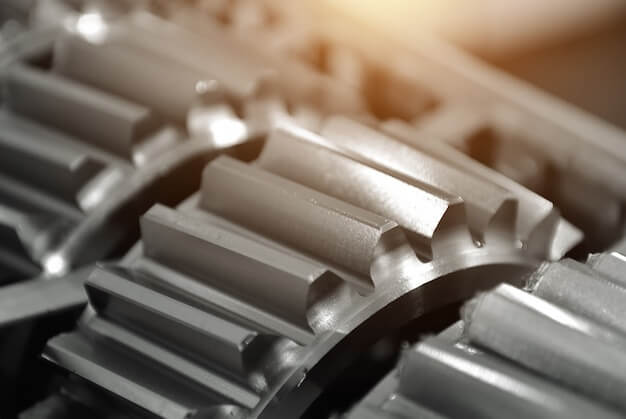Machinability of Invar and Kovar Alloys for Precision Parts
The alloys, Invar and Kovar are two materials widely used in the precision parts industry. To begin with, Invar (short for Invariable), is a unique iron-nickel alloy known for its unusually low coefficient of thermal expansion; this characteristic makes it incredibly valuable in industries that demand high dimensional stability even amid temperature fluctuations. On the other hand, Kovar – an alloy of nickel-cobalt and iron, stands out due to its controlled thermal expansion properties which enable compatibility with certain glass or ceramic materials. The selection between these two alloys has a significant impact on component performance, especially in sectors such as aerospace, electronics, telecommunications, among others where precision parts play an indispensable role.
- Precision parts are crucial in various industries for functional effectiveness and improvements in product lifetimes.
- A key determinant of the form, fit, and function of precision machined parts is the material chosen for their fabrication, hence, understanding the machinability of potential choices like Invar and Kovar becomes essential.
- For instance, the telecom industry heavily relies on Invar for waveguides and resonators owing to its beneficial property of minimal contraction/expansion under diverse temperatures.
Overview of Machinability
Machinability refers to the ease with which a material can be cut (machined) using machine tools. It is an important aspect to consider in manufacturing and production fields, affecting both cost-effectiveness and quality of final products.
- A. Explanation of Machinability Concept:
Machinability encompasses various factors including how easily a cutting tool can penetrate into a material, chip formation, heat generation during machining as well as durability or wear- resistance of cutting tools. The higher a material’s machinability rate, the better it is for high speed and precision machining processes. - B. Factors affect the Machinability of Materials:
Material’s physical properties significantly influence its machinability. For instance, the hardness of a material plays a crucial role – softer materials tend to have better machinability but may lack strength and rigidity necessary for certain components. Other factors include a material’s thermal conductivity, ductility, shear strength and melting point. Even attributes like chemical reactivity could play a part; if a metal reacts adversely with a coolant used in machining, it might compromise performance or longevity of the end-products.
To exemplify, Invar and Kovar alloys are frequently utilized for precision parts due to their low thermal expansion properties making them ideal for applications requiring extreme dimensional stability. Their specific characteristics contributes substantially towards their varying degrees of machinability.
Machinability of Invar alloy and its effect on precision part production
Invar alloy offers excellent machinability, making it suitable for precision part production. Its low thermal expansion and high dimensional stability contribute to its effectiveness in maintaining tight tolerances during machining processes. The machinability of Invar alloy ensures the production of high-precision parts, meeting the stringent requirements of various industries such as aerospace, defense, and scientific instrumentation.
Machinability of Kovar Alloy
Kovar alloy, known for its unique characteristics such as excellent mechanical properties and controlled thermal expansion capabilities, poses various machining challenges. The material’s inherent hardness and strength increase the effort needed to cut or shape it, thereby affecting its machinability adversely. However, these attributes also lend themselves well when it comes to precision part production making it an ideal choice for applications in industries like aerospace and electronics.
- The high nickel content enhances Kovar’s stability but necessitates the use of specific cutting tools, lubricants, and appropriate feed speeds to manage the strain on machinery during the machining process.
- Conversely, these very qualities make it particularly beneficial for manufacturing electric vacuum tubes where its low coefficient of expansion enables precise fits against glasses and ceramics under variable temperatures.
To exemplify, in semiconductor packages, Kovar is extensively used due to its predictable size alterations across different temperature ranges, ensuring electrical components perform reliably even in challenging environmental conditions.
Direct Comparison: Machinability of Invar vs. Kovar for Precision Parts
When working with precision parts, the correct choice of material is crucial to achieving top-notch performance. Comparing the machinability characteristics between Invar and Kovar, both offer unique advantages. While Invar boasts excellent dimensional stability across a broad temperature range, lending itself well to applications requiring high-temperature parts or thermal stability such as satellites or certain machinery components. On the other hand, Kovar exhibits superior weldability and low thermal expansion compatible with hard glass, making it ideal for use in electronics like hermetic seals in vacuum tubes. By evaluating these traits:
- Kovar’s superior machinability due to its ability to effectively bond with glass
- Invar’s strength in maintaining stable dimensions under varying temperatures
The decision ultimately depends on the desired application. It’s therefore important to understand the specific needs of your project before selecting the right alloy.
Related Posts
- The Role of Alloy 6061 vs. 2024 Aluminum in CNC Aerospace Components: Which is More Efficient?
Introduction to CNC Aerospace Components and Aluminum Alloys 6061 & 2024 CNC (Computer Numerical Control) aerospace components are critical in the aviation industry, primarily attributed to their precision, reliability, and…
- Is Copper the Right Choice for Electrical Component CNC Machining? A Detailed Analysis
CNC Machining of Electrical Components Utilizing Copper In the field of electrical engineering, Computer Numerical Control (CNC) machining plays an integral role, particularly in the development and manufacturing of electrical…
- Understanding Bead Blasting in CNC Machining(china machining Avery)
Bead blasting, a compelling term in the world of Computer Numerically Controlled (CNC) machining, is an influential process that plays a transformative role in optimizing and enhancing parts' aesthetic and…








